#Childrens Writers
Explore tagged Tumblr posts
Text
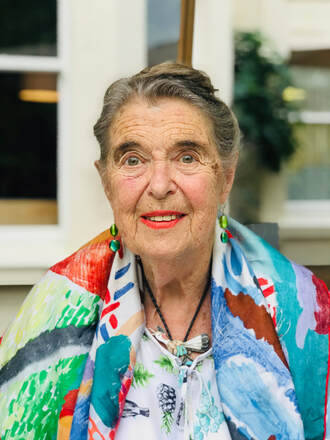

LYNNE REID BANKS (1929-Died April 4th 2024,at 94).British author of books for children and adults.Banks wrote forty-eight books, including the best-selling children's novel The Indian in the Cupboard, which has sold over 15 million copies and has been successfully adapted to film. Her first novel, The L-Shaped Room, published in 1960,was an instant and lasting best seller. It was later made into a movie of the same name and led to two sequels, The Backward Shadow and Two is Lonely. Banks also wrote a biography of the Brontë family, entitled Dark Quartet, and a sequel about Charlotte Brontë, Path to the Silent Country.Lynne Reid Banks - Wikipedia
#Lynne Reid Banks#British Novelists#British Children's Writers#English Novelists#English Children's Writers#Childrens Writers#The Indian in the Cupboard#The L-Shaped Room#Notable Deaths in April 2024#Notable Deaths in 2024#Children Authors
4 notes
·
View notes
Text
Writing Notes: Children's Dialogue
Language is extremely complex, yet children already know most of the grammar of their native language(s) before they are 5 years old.
BABBLING
Babbling begins at about 6 months and is considered the earliest stage of language acquisition
By 1 year babbles are composed only of the phonemes used in the language(s) they hear
Deaf babies babble with their hands like hearing babies babble using sounds
FIRST WORDS
After the age of one, children figure out that sounds are related to meanings and start to produce their first words
Usually children go through a holophrastic stage, where their one-word utterances may convey more meaning
Example: "Up" is used to indicate something in the sky or to mean “pick me up”
Most common first words (among the first 10 words uttered in many languages): “mommy,” “daddy,” “woof woof,” “no,” “bye,” “hi,” “yes,” “vroom,” “ball” and “banana”
WORD MEANINGS
When learning words, children often overextend a word’s meaning
Example: Using the word dog to refer to any furry, four-legged animal (overextensions tend to be based on shape, size, or texture, but never color)
They may also underextend a word’s meaning
Example: Using the word dog to refer only to the family pet, as if dog were a proper noun
The Whole Object Principle: When a child learns a new word, (s)he is likely to interpret the word to refer to a whole object rather than one of its parts
SYNTAX
At about two years of age, children start to put words together to form two-word utterances
The intonation contour extends over the two words as a unit, and the two-word utterances can convey a range of meanings:
Example: "mommy sock" = subject + object or possessive
NOTE: Chronological age is NOT a good measure of linguistic development due to individual differences, so instead linguists use the child’s mean length of utterance (MLU) to measure development
The telegraphic stage describes a phase when children tend to omit function morphemes such as articles, subject pronouns, auxiliaries, and verbal inflection
Examples: "He play little tune" or "Andrew want that"
Between 2;6 and 3;6 a language explosion occurs and children undergo rapid development
By the age of 3, most children consistently use function morphemes and can produce complex syntactic structures:
Examples: "He was stuck and I got him out" / "It’s too early for us to eat"
After 3;6 children can produce wh-questions, and relative pronouns
Sometime after 4;0 children have acquired most of the adult syntactic competence
PRAGMATICS
Deixis: Children often have problems with the shifting reference of pronouns
Children may refer to themselves as "you"
Problems with the context-dependent nature of deictic words: Children often assume the hearer knows who s/he is talking about
AUXILIARIES
In the telegraphic stage, children often omit auxiliaries from their speech but can form questions (with rising intonation) and negative sentences
Examples: "I ride train?" / "I not like this book"
As children acquire auxiliaries in questions and negative sentences, they generally use them correctly
SIGNED LANGUAGES
Deaf babies acquire sign language in the same way that hearing babies acquire spoken language: babbling, holophrastic stage, telegraphic stage
When deaf babies are not exposed to sign language, they will create their own signs, complete with systematic rules
IMITATION, REINFORCEMENT, ANALOGY
Children do imitate the speech heard around them to a certain extent, but language acquisition goes beyond imitation
Children produce utterances that they never hear from adults around them, such as "holded" or "tooths"
Children cannot imitate adults fully while acquiring grammar
Example:
Adult: "Where can I put them?" Child: "Where I can put them?"
Children who develop the ability to speak later in their childhood can understand the language spoken around them even if they cannot imitate it
NOTE: Children May Resist Correction
Example: Cazden (1972) (observation attributed to Jean Berko Gleason) – My teacher holded the baby rabbits and we patted them. – Did you say your teacher held the baby rabbits? – Yes. – What did you say she did? – She holded the baby rabbits and we patted them. – Did you say she held them tightly? – No, she holded them loosely.
Another theory asserts that children hear a sentence and then use it as a model to form other sentences by analogy
But while analogy may work in some situations, certainly not in all situations:
– I painted a red barn. – I painted a barn red. – I saw a red barn. – I saw a barn red.
Children never make mistakes of this kind based on analogy which shows that they understand structure dependency at a very young age
BIRTH ORDER
Children’s birth order may affect their speech.
Firstborns often speak earlier than later-born children, most likely because they get more one-on-one attention from parents.
They favor different words than their siblings.
Whereas firstborns gabble on about animals and favorite colors, the rest of the pack cut to the chase with “brother,” “sister,” “hate” and such treats as “candy,” “popsicles” and “donuts.”
The social dynamics of siblings, it would appear, prime their vocabularies for a reality different than the firstborns’ idyllic world of sheep, owls, the green of the earth and the blue of the sky.
MOTHER'S LEVEL OF EDUCATION
Children may adopt vocabulary quite differently depending on their mother’s level of education.
In American English, among the words disproportionately favored by the children of mothers who have not completed secondary education are: “so,” “walker,” “gum,” “candy,” “each,” “could,” “wish,” “but,” “penny” and “be” (ordered starting with the highest frequency).
The words favored by the children of mothers in the “college and above” category are: “sheep,” “giraffe,” “cockadoodledoo,” “quack quack,” the babysitter’s name, “gentle,” “owl,” “zebra,” “play dough” and “mittens.”
BOYS / GIRLS
One area of remarkable consistency across language groups is the degree to which the language of children is gendered.
The words more likely to be used by American girls than by boys are: “dress,” “vagina,” “tights,” “doll,” “necklace,” “pretty,” “underpants,” “purse,” “girl” and “sweater.”
Whereas those favored by boys are “penis,” “vroom,” “tractor,” “truck,” “hammer,” “bat,” “dump,” “firetruck,” “police” and “motorcycle.”
Tips for Writing Children's Dialogue (compiled from various sources cited below):
Milestones - The dialogue you write should be consistent with the child's developmental milestones for their age. Of course, other factors should be considered such as if the child has any speech or intellectual difficulties. Also note that developmental milestones are not set in stone and each child is unique in their own way.
Too "Cutesy" - If your child characters are going to be cute, they must be cute naturally through the force of their personality, not because the entire purpose of their existence is to be adorable.
Too Wise - It’s true kids have the benefit of seeing some situations a little more objectively than adults. But when they start calmly and unwittingly spouting all the answers, the results often seem more clichéd and convenient than impressive or ironic.
Unintelligent - Don’t confuse a child’s lack of experience with lack of intelligence.
Baby Talk - Don’t make a habit of letting them misuse words. Children are more intelligent than most people think.
Unique Individuals - Adults often tend to lump all children into a single category: cute, small, loud, and occasionally annoying. Look beyond the stereotype.
Personal Goals - The single ingredient that transforms someone from a static character to a dynamic character is a goal. It can be easy to forget kids also have goals. Kids are arguably even more defined by their goals than are adults. Kids want something every waking minute. Their entire existence is wrapped up in wanting something and figuring out how to get it.
Don't Forget your Character IS a Child - Most of the pitfalls in how to write child characters have to do with making them too simplistic and childish. But don’t fall into the opposite trap either: don’t create child characters who are essentially adults in little bodies.
Your Personal Observation - To write dialogue that truly sounds like it could come from a child, start by being an attentive listener. Spend time around children and observe how they interact with their peers and adults. You can also study other pieces of media that show/write about children's behaviour (e.g., documentaries, films, TV shows, even other written works like novels and scripts).
Context - The context in which children speak is crucial to creating realistic dialogue. Consider their environment, who they're speaking to, and what's happening around them. Dialogue can change drastically depending on whether a child is talking to a friend, a parent, or a teacher. Additionally, children's language can be influenced by their cultural background, family dynamics, and personal experiences. Make sure the context informs the dialogue, lending credibility to your characters' voices.
Sources and other related articles: 1 2 3 4 5 6 7 8 9 10
Writing Notes: On Children ⚜ Childhood Bilingualism More: Writing Notes & References ⚜ Writing Resources PDFs
#writing prompt#writeblr#writers on tumblr#spilled ink#poets on tumblr#writing notes#children#writing tips#literature#writing advice#writing reference#studyblr#langblr#linguistics#dark academia#dialogue#writing resources
4K notes
·
View notes
Text
🚨URGENT DISTRESS CALL
400 Days Of WAR On Gaza, Palestine
My Account Was Verified & Listed #99

I'm Alaa Khateeb from Gaza, Palestine with 8 of my family among us 4 young Children under 10 years we lives a Dangerous WAR from 400 Days Ago feels like 400 years.
Please Read Our Story
Displaced From Our Home 7 Times & Now Living In A Tent That Lacks Of Life. We Lost Our Jobs, Salaries & Everything.
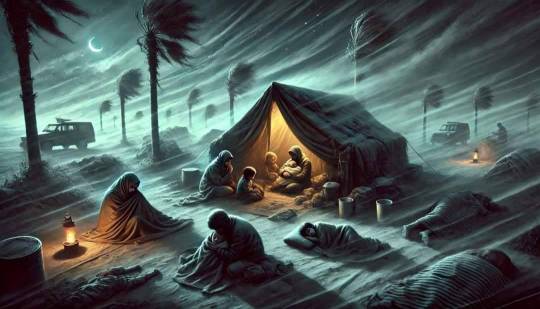
Pictures & Words Fail To Describe Our Situation🥹
Please Don't Leave Us Alone. Help Us Even With A Little, Because it's A Lot For Us.
Please Click & Donate🙏

Your Donation Will Save Our Lives & Fix It🙏🏻
Direct Donation Link 🔗
#gaza genocide#free gaza#artists on tumblr#save palestine#palestinian genocide#i stand with palestine#palestine gfm#gaza gfm#vetted gfm#gfm#send help#please help#pls help#help gaza#help#give me attention#usa#ukamazon#free palestine#all eyes on palestine#tumblr milestone#dangerous#save the children#young artist#artwork#photographers on tumblr#writers on tumblr#gofundme#gofundus
645 notes
·
View notes
Text
sorry but the one headcanon I do not believe for jayvik is them having kids. at most they adopt a teenager (as is Zaunite tradition) as like an apprentice. Jayce’s body count literally started with a child and the percentage of people he’s killed (accidentally or on purpose) includes more. Viktor probably killed like 20 plants using the hexcore for testing. in fact, the hexcore literally only saved one person and that person was him. they might hate kids they might love kids but those two are incapable of keeping anything but each other alive and even they’re bad at that.
#at most they keep like an egg unbroken for a week#those assholes aren’t making it to a parent teacher conference either#they’re too busy with each other#I’m also not the biggest fan of “has kids to prove everything is all good for couples in media#the only time it worked for me was hunger games#arcane#viktor arcane#jayce talis#jayvik#jayvik headcanons#but if you headcanon then with a gaggle of children then yay!#do your funky thing you fantastic writers you
409 notes
·
View notes
Text
Fantasy Guide to Royal Children - Heirs and Spares
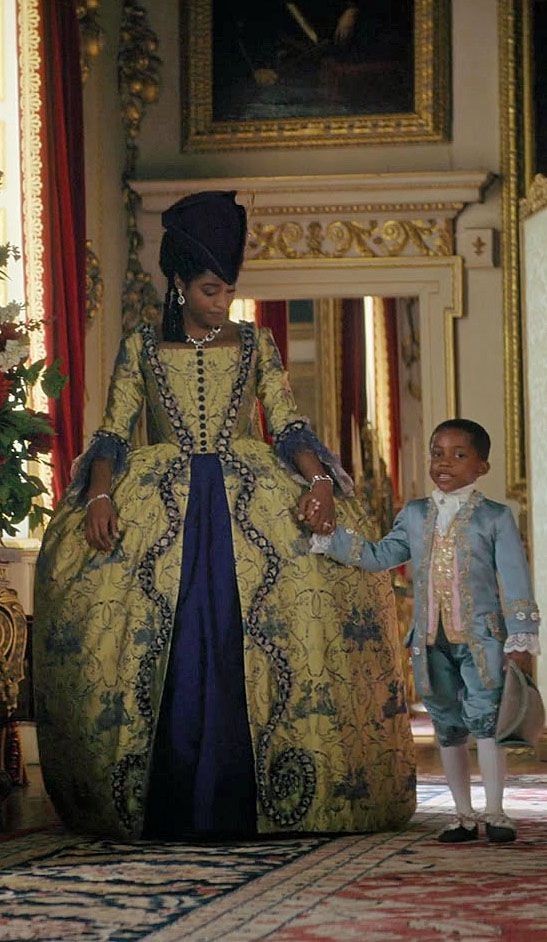
The lives of Princesses and Princes are of interest to most fantasy writers, it's where many of our heroes, side characters and antagonists hail from. But what is there life like? Is it always ballgrowns and servants? Or something more?
A Strict Order of Precedence

The first thing to know about royal children and siblings is that there's a very strict precedence of importance. Is it fair? No. But this is a system, it doesn't have to be fair. The heir comes first without argument. They are the most important child, they are always greeted first, they are the one to stand next to the monarch or their parents at occasions, they literally go first - and this doesn't change with age, if the heir is the youngest, they still have precedence over their siblings. After the heir, order of predence goes by age and the order effects the life of the children. For example, the older sister will marry begore any of her sisters. This order of deference will be so engrained in your character's life that they will believe it the norm and rarely question it, it probably won't spark any in-fighting.
Accommodation & Staff

Royal children are usually raised one of two ways. Either they are raised at court, in the same Palace as their parents or they are raised away from court under the care of trusted servants. Being raised away from their parents isn't a sign of remoteness or dislike or terrible parenting, it was a way of break a child into the constraints of royal life while giving them freedom of scrunity or danger. Usually these children are raised in the countryside for their health, as cities are usually cesspits for disease. Their parents would come to visit them or allow them to visit them at court. Children raised at court are raised with a higher level of scrunity and attention. They will be in the public eye.
Royal children will always be surrounded by staff. There will be nurses to wash and dress them, nannies to discipline and direct them, guards to protect them and usually, a guardian known as a governess to run their household and care for their needs. Staff are not allowed to hit royal children and must obey their commands. Some royal children were very close to their staff:
Kat Ashley and Elizabeth I
Baroness Lehzen and Queen Victoria
Klementy Grigorievich Nagorny and the Tsarevich Alexei Nikolaevich
Lala Bill and Prince John
However, some royal children faced neglect from their staff. George VI was abused by his nanny, who would pinch him during important occasions, openly favour his elder brother over him and deny him food, which many have been a cause of his speech impediment. After the Russian Revolution, another of the Tsarevich's nannies proved less loyal than the other. Andrei Yeremeyevich Derevenko abandoned his charge, but not before ordering the boy around and insulting him.
Day to Day Life

Royal children would be educated withing their home by tutors. They would usually take lessons all together (the heir may take other lessons). A royal child would recieve an education in languages, arithmetic, geography, etiquette, dancing, music, sports such as riding and literature. Sometimes they would even share lessons with the children of trusted nobles or their cousins. Only the heir will be taught statecraft and how to reign. There is no rhyme nor reason a spare would learn how to rule.
Some royal children are taught the value of their position. Many royal children will be raised strictly to adhere to their social standing and their place in it. Some children may be raised in isolation, kept from mingling and raised to think of themselves as higher than those around them. Some royal families preferred to raise their children as "normal" as possible. The last Romanov children slept in camp beds, with no pillows and we're expected to tidy their own rooms and help the servants. They didn't even use their proper titles, they were called by their names and given a tight monthly allowance to spend. Alexandra of Denmark and her sisters used to make their own clothes. Some royal children could even be encouraged to play with the children of servants and staff as well as nobility (Kolya Derevenko and Tsarevich Alexei Nikolaevich, Winifred Thomas and Prince John). Companionship was a great honour for noble and common child alike as sometimes, they would be invited to live or be educated alongside by the royal children.
Royal children will not undertake royal duties until they are of age. Younger children be be present for large scale events such as jubilees but would not be expected to partake in any duties themselves. When they are of age, they will usually be granted an annual allowance, be invited to social events, invited to be patrons of charities and participate in royal duties.
Heir Vs Spare
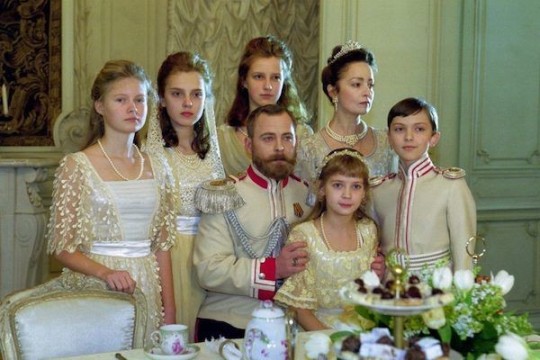
Heirs have more responsibility, all the prestige, more power but they have less freedom, less room to explore their own lives and be expected to always be the epitome of perfect. Heirs will be given responsibilities in government, sitting in on state meetings or undertaking state duties.
Spares have little in the way of real power but have the ability to live less regimental lives and gave more agency in their personal lives. Spares may act as ambassadors to other nations or undertake state visits on behalf of the monarchy or even take positions in the army. Spares are encouraged to find positions to support themselves outside the family, either in a marriage or undertaking some service to the country. Spares who stay in the country, tend to act as unofficial advisers to their sibling when they become monarch.
All Grown Up

When royal children grow up, there are usually certain expectations and limitations.
Heirs will be married quickly, the lineage must be secure. Heirs will usually marry either as part of a political alliance or marry somebody suitable - from a good family, the right background, and able to fit into a certain mould (i.e malleable, amiable and loyal). They will be expected to focus on the country, it's needs and support the monarch at all times. Their social circles will be scruntised, their every move will be noted and remarked upon. Heirs will never gave to worry about funding their lifestyle, the Crown is their job and it supports them.
Spares can marry or remain single if they choose, (but if the monarch instructs them go marry they must). Spares can travel, they can be idle, they can even persue amusements not permitted for the heir. Spares can win glory on the battlefield and mix with all sorts of people. That isn't to say spares are useless, spares often occupy very important spaces in society and government. Spares will usually take these positions not for just status but also for the pay. This is why spares are granted royal titles such as dukedoms (they can make money off the lands, be able to build a dynasty for themselves and their heirs and gain status).
#Fantasy Guide to heirs and Spares#Fantasy Guide to Royal Children#Fantasy Guide#write#writing#writeblr#writing resources#writing reference#writing advice#writers#writing advice writing resources#spilled ink#Writing reference writing resources#Writing resources writing reference#Writing advice writing reference#Writing advice writing resource#Royal children#Writing royal characters#Royalty#Writing royalty#Writing royals
3K notes
·
View notes
Text
It's kind of annoying (and weird) how DC keeps trying to rewrite how Jason and Bruce met to paint Bruce in a worst light.
Originally, Batman finds Jason stealing the Batmobile's tires, the kid runs away, and Batman finds him. Discovering the kid is homeless, he gives him to the authority and Jason finishes at Ma Gunn's school. Ma Gunn is actually teaching the kids to be gang members, so Jason tells Batman. Together, they win again Ma Gunn, and Bruce takes Jason in because he sees himself in him.
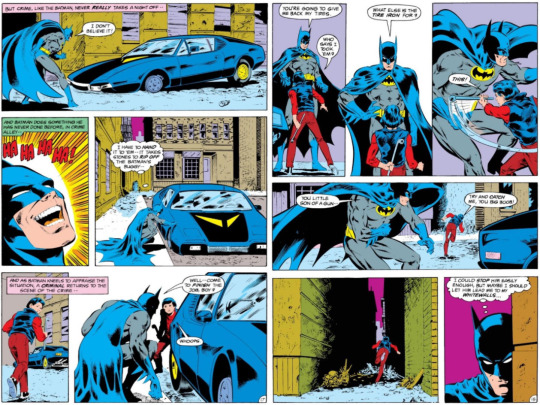
Well, in Nightwing: Year One, they change it for "Batman kidnapped Jason when he found him stealing his tires and forces him to become Robin", with Jason ATTACHED AND GAGGED in the batcave. (I like this comic except for that because wtf)
In Red Hood and The Outlaws (2011), they changed it for "Jason stole drugs from Leslie and Batman was ready to beat and throw a young teen in jail, but Leslie begged him to give him a chance", which again, wtf. Batman beating up a child. Okay.
In Red Hood and The Outlaws (2016), they changed it for "Bruce put Jason in Ma Gunn's school because he couldn't handle him after taking him in". The only good addition they made is "when Batman caught Jason stealing his tires, he bought him food".
I do not understand why they need to make him awful to this 12 years old so bad. What do they want to make it as if Bruce forced that life on Jason but also didn't want to deal with him. Why they cannot let it as it is, with Bruce having fun dealing with this lil shit that stole his tires and being there for him when he needs him later on, until he finally craves and takes Jason home.
And that's why I am so critical on how Batman and Bruce is written in Nightwing and Red Hood stories, because the writers are incapable to make their main character have conflict with Bruce, without changing his character and their story to make him abusive. They need him to be the bad guy of Jason's, and sometimes Dick's, story because they don't know how to make you side and care for their character without making the other side a monster.
#bruce wayne#batman#jason todd#robin#dick grayson#nightwing#dc comics#my ramblings#that's how you get Jason's fans that believe Bruce doesn't care or help the people struggling and Crime Alley#and doesn't understand this world which is NOT TRUE AT ALL#Bruce understands that people coming crimes because of their circonstances and he wants children to get the help their need#he literally has a breakdown in Gotham Knights because he refuses to believe a kid could kill his own parents#and after he talks about helping the kid he doesn’t even view this kid as a criminal because it's a kid#Jason's writers stop making Bruce treats him like trash challenge impossible#including Nightwing because they fucking love to write Bruce hitting Dick in Nightwing for some reasons
461 notes
·
View notes
Text
As if I wasn't already exhausted enough this morning...
It's been brought to my attention that people are taking my fanfics, editing them, and sharing them around. I don't have the words to describe how not okay this is. If you don't like something about my fanfic, then I'm sorry to hear that, but there are a lot of other fics out there you can read instead.
I put time and effort and care into my writing, as does every writer. To take my work without permission and change it feels like someone just punched me in the gut. Frankly it makes me not want to share my work at all and to take down all the writing I do have up, because why should I share anything with people if all they're going to do is decide it's not good enough and they're going to do what they want with it and make it "better"?
And before anyone comes at me, this is not what a transformative work does. This is not the same as fanfiction. I'm fucking exhausted from working two eleven hour shifts over the weekend so my brain is not working so someone smarter and more articulate than I am can explain why. I'm tired.
This genuinely makes me want to take down all my works and not share anything new. It's very simple, kiddos: Don't like it? Don't read it. You will miss out on some fanfics that way, just like you'll miss out on some films, or books, or TV shows. I've missed out on really good fic, novels, films, etc, for the same reason. We all do. It's a part of life. Stuff will sometimes have things in it that you don't like. Skim those parts, fast-forward those scenes, grin and bear it, or just go and read/watch something else.
Normally I would make this post unrebloggable but I worry other writers in this fandom might experience the same thing and not realize it. So people are welcome to reblog this. Anyone who's an ass on it will be blocked, no second chances.
Just. Don't do this guys. Holy shit don't do this. What the actual fuck.
#lincoln writes stuff#911 abc#911 fanfic#yes unfortunately tagging the fandom since that's the fandom it happened in#I'm just#holy fuck#genuinely I want to message every writer I know in this fandom#even if we've never spoken#to like... warn them this is apparently a thing#I wish I could make my brain work right now but I'm so fucking braindead#I'm working three jobs and this is my fun relax safe space except NOT ANYMORE 'CAUSE PEOPLE ARE BEING DICKS#just... don't fucking do this what the FUCK is wrong with you#actual CHILDREN are more respectful holy fuck
858 notes
·
View notes
Text
Prompt 337
Hear me out: Danny & Co in Gotham, but instead of getting found or adopted by the Bats, the Goonion is the one to find them.
It’s not the first time any of them have stumbled across feral street children, but they’re getting flashbacks to a lot of their rogue bosses if they were like, mini. And a lot of them are just workin to survive, or for their families to survive.
It should be easy enough to pspsp feral kids over right? Batman’s done it before and he’s terrifying so it should be- wait no, come back they’re trying to help-
#DCxDP#DPxDC#Prompts#The Goonion pointing at the kids: OUR children#Could be de-aged or could be their canon ages up to the writers honestly#Dani is the first to accept some food or a jacket because she was never taught stranger danger#Danny isn’t ghost king#But he does have a fluffy cape made by his ghost parents#Which was the only thing he managed to grab before the portal blew up & took Fentonworks with it#How did that happen? :)
569 notes
·
View notes
Text

“I remember an incident from my own childhood, when a very close friend of mine and I, we were walking down the street. We were discussing whether God existed. And she said he did not. And I said he did. But then she said she had proof. She said, ‘I had been praying for two years for blue eyes, and he never gave me any.’ So, I just remember turning around and looking at her. She was very, very Black. And she was very, very, very, very beautiful. How painful. Can you imagine that kind of pain? About that, about color? So, I wanted to say you know, this kind of racism hurts. This is not lynchings, and murders, and drownings. This is interior pain. So deep. For an 11 year-old girl to believe that if she only had some characteristic of the white world, she would be okay. [Black girls] surrendered completely to the master narrative. I mean the whole notion of what is ugliness, what is worthlessness. She got it from her family, she got it from school, she got it from the movies — she got it everywhere; it’s white male life. The master narrative is whatever ideological script that is being imposed by the people in authority on everybody else. The master fiction, history, it has a certain point of view. So, when these little girls see that the most prized gift that they can get at Christmastime is this little white doll, that’s the master narrative speaking: “This is beautiful. This is lovely, and you’re not it.”
Toni Morrison on what inspired her to write her first novel, The Bluest Eye.
#toni morrison#the bluest eye#1970#novel#writer#black writer#black literature#black girls#dark skinned black girls#misogynoir#anti blackness#black women#colorism#black children#african american#african american women#queen#quote#sbrown82
557 notes
·
View notes
Text
I just saw a video saying that while op adored Percy and annabeth she couldn't forgive them for ruining so many lives on their quest for a happy ending?????
She was claiming that because they got to be happy they ruined, Rayna and her sisters life, Bianca and Nico's life, screwed over Calypso, and apparently every other character in the books with an unhappy life.
Like next time just say you didn't understand the story instead of trying to justify weird reasons to not like the main characters.
Because it was not Percy or Annabeth's fault that the choice they made to try and survive quests given to them when they were teenagers by the gods were one of the many things that led to bad circumstances for other characters.
Circe was a bad person and just because working for her was okay right then doesn't mean it would have stayed like that. But also it's incredibly stupid to say that Percy and Annabeth ruined the sisters lives when they were 13 and just trying to survive and find grover.
Calypso wasn't Percy's responsibility. He owed her nothing, it was out of kindness and a desire to make things better that he asked that the gods release her from her punishment. He had no idea that the gods would be petty and not tell her she was free. His not going back to get her because he was "so distracted being with Annabeth" isn't a bad thing because once again he didn't owe Calypso anything, he didn't promise her anything. Stop saying that she's an innocent victim because she was on the island for a reason and it is only due to Percy trying to make things better that Leo could swoop in like a knight in shining armor.
Nico and Bianca. This is probably going to make a lot of Nico fans mad but Percy held no responsibility for what happened to Bianca or Nico . Yes he promised to try and protect her however she made a choice that made it impossible for anyone to help her. She knew that and she still made that choice, something Nico does throughout the main and sequel series. Percy once again owes Nico nothing, he did his best to save Bianca, he tried to help Nico even when he wanted Percy dead, he doesn't owe him anything even if Nico liked him.
Stop blaming Annabeth and Percy for every bad thing that has happened in the Percy Jackson universe. Percy and Annabeth did not go on quests for years, fight two wars and suffer trying to save the world while losing friends and family just for you to say that other characters had it worse and it's their fault.
#rant post#literally people blame percy for so many things that happened#stop blaming these characters#its stupid#they were children#if you want to be mad be mad at the gods or the writer#percy jackon and the olympians#percy jackson#annabeth chase#heros of olympus
575 notes
·
View notes
Text
racism in star wars will have wikis saying shit like "this species that is inspired on a real life non-white people is just too stupid to use the Force"
#hm i should make an original post tag#yes this is about tuskens#they 'lack mental capacity' to be jedi. according to some writer#which is fucking ridiculous#they have enough mental capacity to have two languages (spoken tusken and tusken sign language)#(they are usually seen being used together but they can be used independently)#just because they're nomadic and hostile to colonizers doesn't mean they're stupid. or lack the nuance to understand good and evil.#in me opinion there may not be any tusken jedi but for the same reason there's no bardottan jedi - they have their own force culture#they are hostile to outsiders and defensive of their people‚ of course they wouldn't let some foreign order take their children away#i think a force-sensitive tusken would be highly regarded in their tribe. being one with the universe is a special privilege.
681 notes
·
View notes
Text


JEAN ADAMSON (1928-Died December 15th 2024,at 96). British writer and illustrator of children's books. She was best known for the Topsy and Tim books,co-written with her husband,Gareth Adamson, the first of which was published in 1960 and which have sold 27 million copies.Adamson's creations were also featured widely on television in 84 episodes of Topsy and Tim.Jean Adamson - Wikipedia
#Jean Adamson#British Children's Writers#british Children's Authors#Childrens Writers#Topsy & Tim#British Authors#children's books#Notable Deaths in December 2024#Notable Deaths in 2024
1 note
·
View note
Text
Writing Notes: Speech & Language

Milestones Related to Speech and Language
Birth to 5 months
Coos
Vocalizes pleasure and displeasure sounds differently (laughs, giggles, cries, or fusses)
Makes noise when talked to
6 to 11 months
Understands "no-no"
Babbles (says "ba-ba-ba")
Says "ma-ma" or "da-da" without meaning
Tries to communicate by actions or gestures
Tries to repeat your sounds
Says first word
2 to 17 months
Answers simple questions nonverbally
Says 2-3 words to label a person/object (pronunciation may not be clear)
Tries to imitate simple words
Vocabulary of 4-6 words
18 to 23 months
Vocabulary of 50 words, pronunciation is often unclear
Asks for common foods by name
Makes animal sounds ("moo")
Starting to combine words ("more milk")
Begins to use pronouns ("mine")
Uses 2-word phrases
2 to 3 years
Knows some spatial concepts ("in" or "on")
Knows pronouns ("you," "me" or "her")
Knows descriptive words ("big" or "happy")
Uses 3-word sentences
Speech becomes more accurate, but may still leave off-ending sounds. Strangers may not understand much of what is said.
Answers simple questions
Begins to use more pronouns ("you" or "I")
Uses question inflection to ask for something ("my ball?")
Begins to use plurals ("shoes" or "socks"; regular past tense verbs, "jumped")
3 to 4 years
Groups objects, such as foods or clothes
Identifies colors
Uses most speech sounds, but may distort some of the more difficult sounds, such as l, r, s, sh, ch, y, v, z, th. These sounds may not be fully mastered until age 7 or 8.
Uses consonants in the beginning, middle, and ends of words.
Some of the more difficult consonants may be distorted, but attempts to say them
Strangers are able to understand much of what is said
Able to describe the use of objects ("fork" or "car")
Has fun with language; enjoys poems and recognizes language absurdities ("Is that an elephant on your head?")
Expresses ideas and feelings rather than just talking about the world around him or her
Uses verbs that end in "ing" ("walking" or "talking")
Answers simple questions ("What do you do when you are hungry?")
Repeats sentences
4 to 5 years
Understands spatial concepts ("behind" or "next to")
Understands complex questions
Speech is understandable, but makes mistakes pronouncing long, difficult, or complex words ("hippopotamus")
Uses some irregular past tense verbs ("ran" or "fell")
Describes how to do things (e.g., painting a picture)
Lists items that belong in a category (e.g., animals or vehicles)
Answers "why" questions
5 years
Understands time sequences (e.g., what happened first, second...)
Carries out a series of 3 directions
Understands rhyming
Engages in conversation
Sentences can be 8 or more words in length
Uses compound and complex sentences
Describes objects
Uses imagination to create stories
NOTE
The ability to hear is essential for proper speech and language development.
Hearing problems may be suspected in children who are not responding to sounds or who are not developing their language skills appropriately.
The above are some age-related guidelines that may help to decide if your child is experiencing hearing problems.
It's important to remember that not every child is the same.
Children reach milestones at different ages.
Source ⚜ More: References ⚜ On Children ⚜ Hearing ⚜ Children's Dialogue
#children#writing reference#writeblr#spilled ink#creative writing#writing tips#milestones#literature#writing notes#studyblr#writing prompt#writing#writers on tumblr#dark academia#poets on tumblr#langblr#light academia#paul peel#writing resources
705 notes
·
View notes
Text
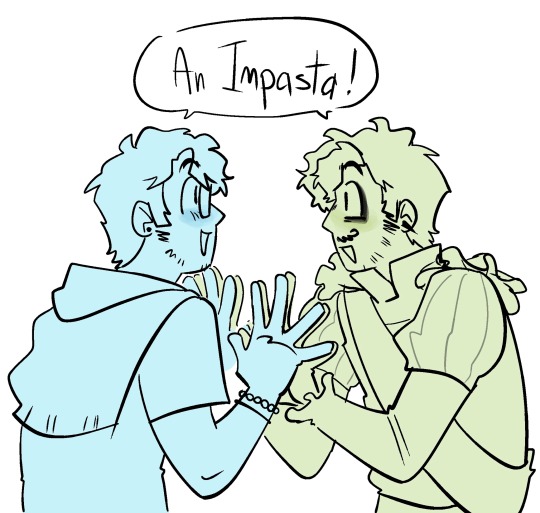
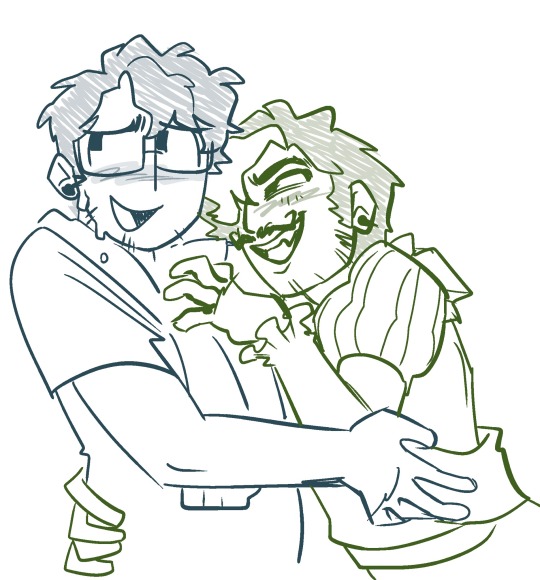
selfcest yaoi for the soul
#caption is a teehee i dont wanna debate the ethics of selfcest#sanders sides#sanders sides fanart#thomas sanders#thomas sanders fanart#tss#tss fanart#patton sanders#remus sanders#intruality#intruality in my top five#moxiety moceit and intruality all in my fave tss ships i just rlly think Patton Should Kiss Those Dark Sides…#but also like. the incorrect quote vids and the second secret santa. bitch. the writers like intruality too.#the children yearn for intruality. thomas himself also yearns for intruality.
494 notes
·
View notes
Text
Storyboard
I've decided to dump some stories here. Some will be crossposted to Ao3 at some point, and some won't. Regardless, I like writing and sharing my stories, so here's this, I guess.
Ao3
Crossovers:
Enough Caffeine to Kill an Elephant (DC x DP)
Part 1 Part 2 Part 3 Part 4 Part 5 Part 6 Part 7 Part 8 Ao3
Side Story
Morally Grey in a World of Black and White (BSD x BNHA/MHA)
Part 1 Part 2
Be Thou For The People (HP x FMA/B)
Part 1
How To Balance Your Daytime and Nighttime Activities So That You Don't Burn Yourself Out More Than You Already Have (DC x DP)
Part 1 Part 2 Part 3 Part 4 Part 5 Part 6 Part 7 Part 8
Take Back Your Minx
Part 1 Part 2 Part 3
Reunion of Brothers
Part 1 Part 2
Single Fandom:
Bruce Wayne is Batman's Biggest Hater
Part 1 Part 2 Part 3 Part 4
Cryptid Rules
Part 1
Random Shit:
DC Comics x Marvel Comics Writing Prompt
Unconventional Summoning
Movie Thought Processes
Secret Identities Writing Prompt (DCU)
Leave Your Fics Here
Superhero Hide 'N Seek Writing Prompt
Ignore this for now
Writing Prompts
Defiled Memories (named by @rin1sakami )
No Hospitals
Asks:
The Outlier
Jack Fenton's Obsession
#storyboard#pinned post#pinned info#writing#writer#links#these are my stories#if not my characters#please don't take them#i put them here to share in good faith#please don't take my ocs#they are my children#the only children i ever plan to have
440 notes
·
View notes
Note
I haven’t read these books in years WHAT is the angel fetuses. What is happening
LMAO yeah there's actually been three instances where Warrior Cats made fetuses into StarClan characters. We're joking about Moonpaw's absorbed fetus twin (Starpaw/The Voice) meeting with Clear Sky's first dead wife's unborn kids.
The first time they did this was in the last book of DOTC, on Gray Wing's deathbed. Bright Stream, last seen in early pregnancy and being carried off by eagles to be gruesomely eaten alive, shows up accompanied by Tiger Tail and Pale Sky. Her embryos.
Because they show up in this big fanservicey montauge of all DOTC's fridged wives happily living as eternal mothers in StarClan, I sardonically call them the Dead Angel Fetus Children.
(It's dark humor to cope with how much the concept freaks me out)
And with Moonpaw, I have to explain how fusion chimerism works.
There are a few types of chimeras, but when a single individual is created from the combination of two fully fertilized zygotes, that is called fusion chimerism. That's what Moonpaw is.
And you have to understand, we're talking zygotes as in cells. The fusion of haploid gametes. NOT embryos (developing major organs) or fetuses (has major organs). When multiple embryos or fetuses are detected during pregnancy, but one vanishes, that is called Vanishing Twin syndrome (VTS).
There is actually very little linkage between VTS and the chance of a baby being born with fusion chimerism. At best it's an overstated link. At worst, it is a general misconception of Vanishing Twin syndrome.
Fusion Chimeras can happen in a lot of different ways, most of them fertilization errors, very few of them involving the multiple embryos of VTS. Likewise, the vast majority of VTS cases do not result in fusion chimeras. I explained Chimerism in-depth over in this post, and I encourage you to follow my citations to learn more if you're interested.
Sooooo... we're not even talking fetuses for Starpaw and Moonpaw. If they ever were separate, it would have been as embryos at best.
Which means that Moonpaw is haunted by cells that hadn't even developed major organs.
Ergo, we're joking around about how peculiar it is that Supernatural Utero Ghosts have happened thrice.
#In the desire to not gesture vaguely; it's because Canon!WC has strongly conservative themes and values imo#The exaltation of obedience to religion and clan/family/social group#Emphasis on traditional values and 'rejecting' soft lives#Constant assertion that there are Fundamentally Good and Fundamentally Bad people#Along with constant fearmongering and reliance on outside foreign threats to Threaten Your Freedoms#I don't even think the writers do it on purpose.#I wouldn't even accuse them of not being liberals/center left/labor/whatever#Mostly I just think this is what not examining your subconscious biases ends up looking like for White Middle Class Brits Of A Certain Age#Bone babble#Dead Angel Fetus Children
161 notes
·
View notes